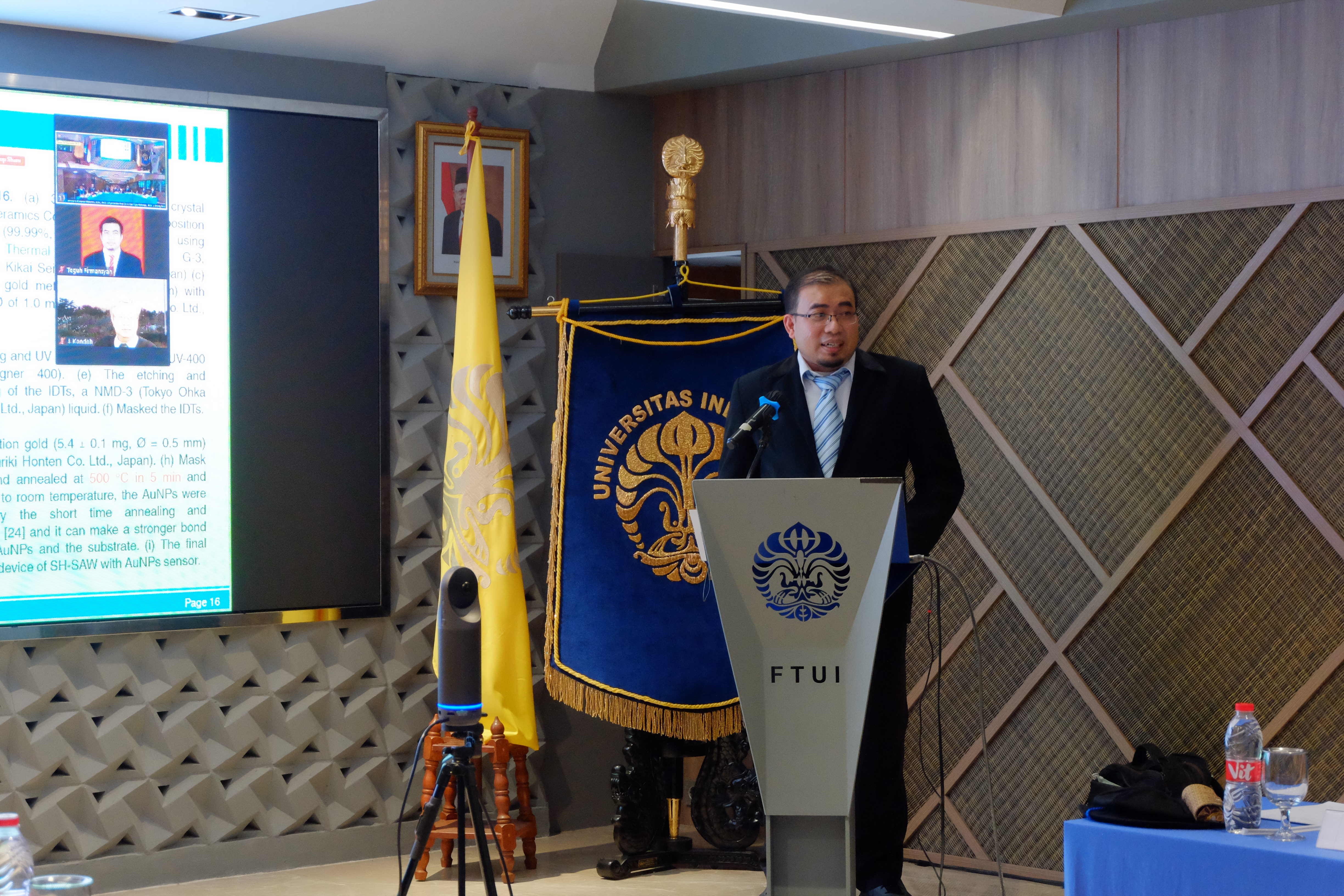Currently, sensors with multifunctional capabilities and high sensitivity are needed to detect environmental conditions in Society 5.0. Some existing sensors generally work with localized surface plasmon resonance (LSRP), shear-horizontal surface acoustic wave (SH-SAW), and microwave methods. resonance (MR).
The LSPR sensor shows good performance in the optical or visible light work area. Meanwhile, the SH-SAW sensor has superior capabilities on the mechanical/vibration and electrical side, especially at low frequencies and acoustics. On the other hand, the microwave resonator has good characteristics to be implemented as a sensor at radio frequency. However, all of these sensors usually work independently, so they have very limited detection parameters. To get the maximum sensor, research on the development of multifunctional sensors is carried out.
The issue of developing multifunctional sensors is discussed by Teguh Firmansyah Ghozali in his dissertation for the Doctoral Program in Electrical Engineering, Faculty of Engineering, Universitas Indonesia (FTUI), entitled “Integration of Gold Nanoparticles in Shear-Horizontal Microwave Ring-Resonators for Reconfigurable LSPR Applications and Multifunctional Sensors”. This dissertation was presented at the FTUI Doctoral Promotion Session which was held last month at the UI Campus, Depok.
“The development of a multifunctional performance sensor by combining the LSPR, SH-SAW, and MR methods to obtain multifunctional performance. Where the advantages of this multifunctional sensor are, it can detect the permittivity, conductivity, and refractive index of a liquid simultaneously, has high sensitivity, can operate for chemical samples, can be combined with wireless communication and IoT, and can be applied to chemical sensors and bio-sensors. especially for antigen and anti-body sensors. Where in the future, sensors can be applied to biosensor devices, especially for Covid-19 detectors,” said Teguh in his presentation.
“From the research results of Dr. Teguh Firmansyah, it can be seen that the development of multifunctional sensors can maximize sensor performance, which can be applied to antigen and anti-body sensors so that it becomes a technology that can detect disease early. It is hoped that in the future this multifunctional sensor research can be expanded for biosensing applications, as well as integrating sensors with machine learning, resulting in a faster and more accurate detection process,” said the Dean of FTUI, Prof. Dr. Heri Hermansyah, ST., M.Eng., IPU regarding this research.
Tguh Firmansyah won his Doctoral degree with a perfect GPA of 4.00 and a Cum Laude predicate which was held by the Faculty of Engineering, Universitas Indonesia, on Monday (26/12). He is the 149th Doctor who graduated from the Department of Electrical Engineering and the 483rd Doctorate at FTUI. The Doctoral Promotion Session was chaired by the Chairman of the Session, Prof. Dr. Ir. Harry Sudibyo S., DEA., with Promoter Ir Gunawan Wibisono, M.Sc., Ph.D., and Co-Promoter, Prof. Dr. Ir. Eko Tjipto Raharjo, M.Sc., and Prof. Jun Kondoh, the Examination Team consisted of Prof. Dr. Ir. Djoko Hartanto, M.Sc., Prof. Dr. Ratno Nuryadi, M.Eng., Prof. Dr. Ir. Nji Raden Poespawati, M.T. Dr. Eng. Arief Udhianto, S.T., M.T.
***
Bureau of Public Communications
Faculty of Engineering, Universitas Indonesia

